By Joshua McMorrow-Hernandez for Gainesville Coins ……
Wouldn’t it just be grand to buy gold or silver at spot price? Think about that pile of metals in your vault growing ever higher, all at the price of what the metal is really worth. Eliminate the middleman — no numismatic premiums. And all the while that silver or gold keeps appreciating in value day after day, month after month, year after year.
Unfortunately, anyone who says they know how to buy at spot price is either lying or mistaken.
So, why can’t you buy precious metals at their spot price (melt value)?
Why do you need to pay dollars over spot to acquire a precious metal bar, round, or coin? It’s not like you’re collecting those pieces for their rarity or artistic merits, right? Buy it, store it, sell it, make your money, and move on.
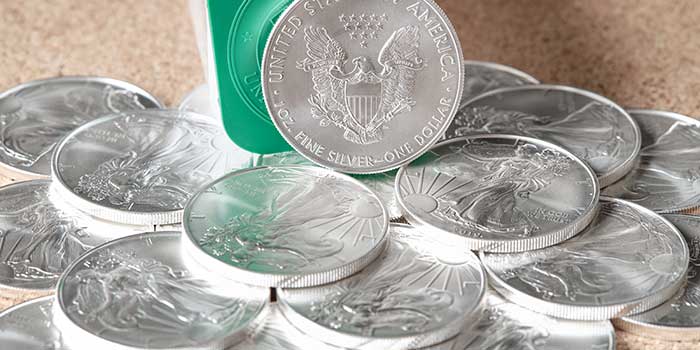
Of course, everyone wants a deal. But for some stackers, buying gold and silver at spot price isn’t necessarily about saving a dollar or two on an American Eagle. Many are prospectors at heart, hunters in spirit. They want the “prize” of obtaining a chunk of precious metal at its spot value, without paying the extra premium. It’s less a matter of greed and more about a mindset, a particular type of outside-the-box outlook on life. There may well be a correlation between this philosophy and the fact that a significant number of stackers also identify themselves as survivalists, prepared for whatever this ever-changing world throws their way.
Bottom Line: The price of a gold or silver product includes overhead costs, manufacturing costs, and labor costs—not just the melt value of the metal.
But why pay more for silver and gold than what the bullion ticker says it’s worth?
Ultimately, it comes down to the cost of doing business. Coin dealers and bullion brokers are financially unable to both buy your bullion at spot price and sell it at spot price, too. That would be an unsustainable business model—businesses need to make a profit. And what’s more, they need to pay the overhead, including rent or mortgage, electric, gas, marketing, payroll, insurance, and—of course—earn some profit, too.
You may have heard the old saying, “There’s no Santa Claus in numismatics.” Of course, it’s a phrase that means you’re not just going to get a bunch of free deals in the arena of buying and selling coins. Everyone wants to earn their share. That’s why stackers do what they do, too. However, this is not to say you can’t find an occasional deal when buying bullion.
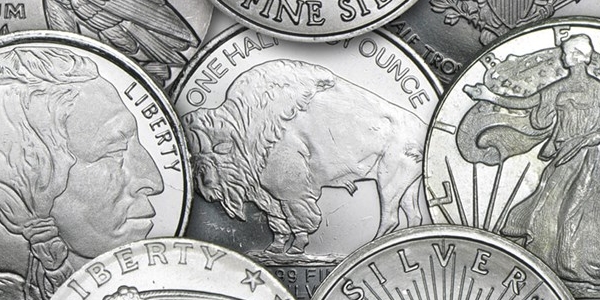
Many bullion dealers offer silver starter packages that contain 10 to 20 ounces of silver at the price of spot. Other dealers will sell a current-year American Silver Eagle at spot—or at a much lower price than fair market value anyway. But there’s a catch. They are usually one-time offers for new customers only. They’re offers that many in the business world call “loss leaders”. The strategy behind this is to build a client base by selling silver coins or other bullion products at prices below the retail market rate. Then, once the customer is established, they charge the “regular” price.
This sales practice isn’t unique to bullion. You probably see it every day. Remember the Columbia House ads in the 1980s and ‘90s that sold 12 cassette tapes or CDs for a penny? How about those CD-ROMs you may have gotten in the mail years back offering 50 hours of free internet from AOL? That first-month-free rental apartment or storage unit? How about those specials at the local fast-food chain where you pay full-price for a sandwich and get free fries and a drink?
These are all types of loss-leader specials. But you can’t keep getting those free fries and drinks forever. At some point, you’re going to pay for them. And that’s the case with paying spot silver prices through an advertisement. There’s no Santa Claus in bullion, either.
In fact, if you sign up for one of those introductory deals where you get silver coins at spot, watch out. Get yourself into a contract situation of some type with one of those bullion outfits, and you may end up paying a lot more than you bargained for. Many of these companies can afford to offer these specials only because they charge much more than fair market value for their products. Remember, nothing is free! Not even silver coins.
Bear in mind that legitimate bullion dealers tend to operate on very thin profit margins. This means they have very little wiggle room to offer enticing discounts.
Bottom Line: Deals for discounted bullion are rare, and should be taken with a grain of salt.
So, What’s A Fair Price for Silver? And Where Should You Buy It?
What is a reasonable premium over spot for silver? The answers to these questions depend on what you’re buying. Silver bars carry the lowest premium, followed by silver rounds. Silver coins generally have the highest premiums. Quantity also counts. Usually, you see lower premiums on bulk orders. Bulk usually means something north of 10 ounces (or units), and typically closer to 100 ounces (or units) and up.
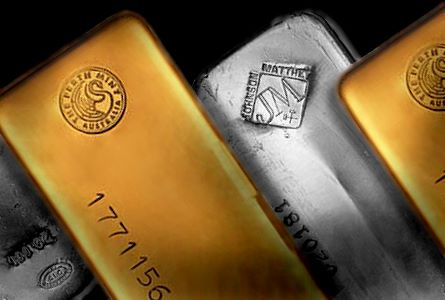
A fair premium for silver bars is typically 5% to 8%, while silver coins usually trade for 12% to 20% premiums above spot. Silver rounds register in between those premium points. Prices can be higher or lower depending on the mint that produced the round and its popularity in the marketplace.
Of course, you get what you pay for, too. Ordinarily, the more popular bars, rounds, and coins–the ones for which you may pay a slightly higher premium–are also more widely recognized and in demand. In other words, they’re generally more liquid and more likely to help fetch you a higher price when the time comes that you wish to sell your silver bullion.
You’ll want a dealer who has many connections with the best numismatic organizations. These include the American Numismatic Association, Certified Coin Exchange, Professional Coin Grading Service, and Numismatic Guaranty Corporation. And a dealer who is an authorized distributor for the world’s major mints. These include the Perth Mint, the Royal Mint, Monnaie de Paris, the Australian Mint, and of course, the United States Mint. After all, such well-affiliated dealers try hard to be the best at what they do. They are not going to want to ruin their reputations.
Finally, make sure you choose a dealer who offers a return policy and stands behind both their products and service. Peace of mind is what gold and silver stackers want—it’s why so many are stocking up for an emergency. Buying bars, rounds, and coins from a reputable dealer who offers their products at fair prices and also pays reasonable prices for the precious metals they buy from you is a winning combination—one in which you are always the winner.


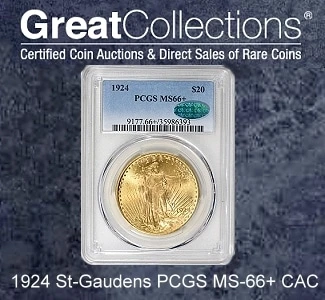
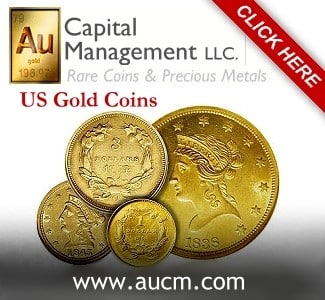
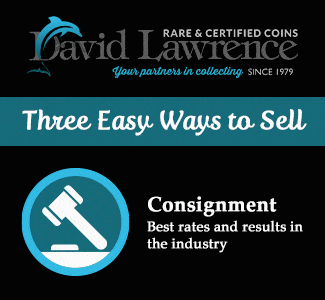
I’m sorry but this article makes me question everything I’ve ever read on coinweek.
“silver coins usually trade for 12% to 20% premiums above spot.”
Please tell me where I can buy sovereign silver coins for <$3 per oz premium. $5 (23%) is a screaming good premium right now.
"Finally, make sure you choose a dealer who offers a return policy"
Is this a joke? Literally none of the major bullion dealers offer return policies on precious metals… That would be like asking Vanguard to offer a return policy on their ETFs
Hi, Grayson —
I’m the author of this article, which I wrote in 2020. At that time, the generic spreads/premiums suggested here were common for the bulk of commonly traded material, and the data was verified by the highly experienced bullion editor for whom I wrote this piece.
You can still find deals like this, especially for less-popular material. The key point here is you will not be finding silver bullion in retail settings at spot price, which is the main concern of this article.
As for return policies, yes — many notable bullion dealers DO offer returns on bullion coin purchases, albeit within only a few days post transaction and in some cases with restocking fees. In other cases they offer exchanges or store credit on bullion. But they do extend return policies and/or customer satisfaction policies in one fashion or another designed to provide peace of mind to the buyer.
The spirit of this article surrounds market factors that contribute to bullion premiums above spot — whatever they may be at the moment — and showcasing the hallmarks of a bullion provider who is not out to rip off their customers.
Wishing you the best on your bullion journey,
Josh
What is the downside, if any, to buy silver bars over silver coins?
I ve seen premiums as high as $8.50 over spot on silver when spot was $22. I just laughed at that sales pitch. Then I said call me when it’s back down to $3.
Your phone won’t ring, physical silver premiums will stay high due to the manipulation on the paper market keeping the spot artificially low. Silver ends the Fed – and if that doesn’t work, we can try copper, lead and brass to slay the monster from Jekyll Island.
3.00 over is a joke !
$3.00 just for suckers lol !
My dad wanted to buy some Silver Eagles to give as Christmas presents. I did some shopping and found the difference between spot (~$21/oz) and retail (~$37/oz) to be a 70% mark up. F*** that. This is not about keeping the lights on. But, it’s a free market, right?
In the 1980s when I began collecting coins the general premium was 8-12% for junk slivers and 8-15 for semi-numismatic gold. Last week I attended a coin show where the premium is up to 100% above melt. Common silver dollars I purchased for $2-4 each—now upward of 35. This big spread between spot and purchase is because about 25% of .10-.50 silver coins remain; while silver dollars less than 15%–most were melted since 1980 and more stackers have entered the market since then. This reflects demand and supply. As the article stated `it’s the price for doing business.’
LOL
(paraphrasing)…”dealers operate on slim margins”
Pls allow me to retort: Theres not one dealer that doesnt rip the casual gold/silver coin seller a new one.
I have no problem charging what the market will bear. I DO have a problem with dealers doing that and crying about it.
Then you sell and dealers offer 50 percent melt value.